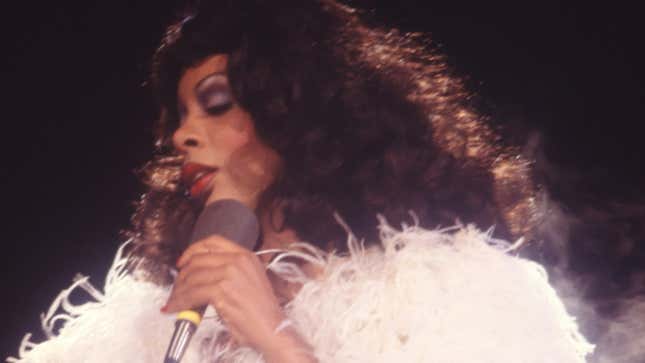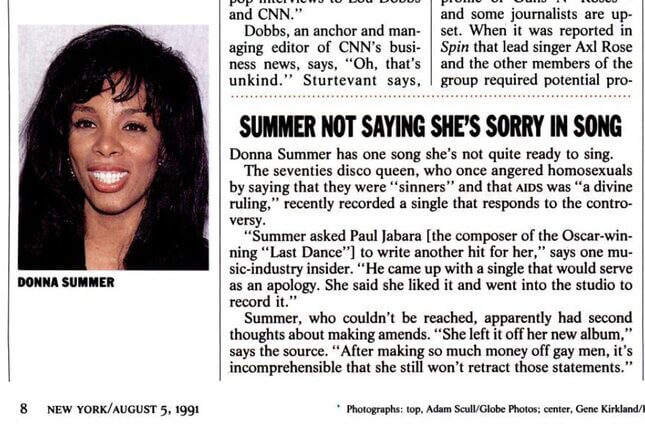New Donna Summer Documentary Doesn’t Gloss Over the Hard Parts
Love to Love You, Donna Summer (HBO) is an intimate look into the life of an artist who was much more than a "figurehead for a movement."
EntertainmentMovies

Before we examine what the documentary Love to Love You, Donna Summer is, it may be useful to look at what it isn’t. “We didn’t want to make Behind the Music,” Roger Ross Williams told Jezebel by Zoom regarding the doc he co-directed, which premieres Saturday on HBO. “We could have interviewed tons of musicologists and experts… You could read an article about Donna Summer in Billboard or whatever. But this is something that you can’t get. This is the family, the insiders. This is from Donna. This is truly who she was as an artist and her journey—and deeply personal.”
“I think it’s very easy to fall into the trap of just being a Wikipedia page,” agreed Williams’ co-director Brooklyn Sudano. “But you’re seeing her in real time. You’re seeing her perform. You’re seeing her greatness in action. And then [we] let the audience make the decision for themselves where they think she stands in kind of the lexicon of music history.”

Sudano, an actor whose directorial debut is this project, has a highly personal stake in getting the portrait right—she’s Summer’s daughter. Williams, meanwhile, has been a longtime fan of Summer (he won a hustle competition in high school dancing to “I Feel Love”). He has a number of films under his belt, including God Loves Uganda, The Apollo, and Music by Prudence, whose Academy Award for Best Documentary Short made him the first Black person to win an Oscar for directing.
Sudano and Williams independently had envisioned a retrospective doc of Summer, who’s best known for her fantastically successful ‘70s disco output, much of which she wrote (alongside forward-thinking producers Giorgio Moroder and Pete Bellotte). A chance meeting between Sudano and Julie Goldman, Williams’ longtime producer collaborator (including on Love to Love You), put the two in touch, and they soon realized they had a similar vision.
“I was really creating this collage, this very immersive experience that felt very grounded and very real and layered,” explained Sudano. “I don’t think you [usually] get that kind of approach, particularly for someone like my mom and that kind of music, and we really wanted to make it as personal and immersive as possible.” Indeed, Love to Love You is packed with archival footage of Summer onstage and, most preciously, behind the scenes, as she routinely filmed herself and her family living life and in skits. Much of what has been unearthed in the doc has never been seen before by the general public. It’s assembled not as a point-A-to-B litany of career milestones and chart positions, but in a more free-flowing manner that touches on Summer’s massive hits—like “Love to Love You Baby,” “Dim All the Lights,” “Bad Girls,” and “She Works Hard for the Money”—while also showing her creative process (many of her albums were based on long-form concepts she devised) and her relationship with fame (often wary and from a remove, as she created a character as her onstage avatar).
Sudano said she was so inspired to take on the project after Summer’s untimely death from lung cancer in 2012. “It was really coming to terms with not having my mom,” said Sudano. “I had just become a mother and I was really processing what that role was like.” She said that she’s been inundated with fan accounts of her mother’s impact on their lives.
-

-

-

-

-

-

-

-

-

-

-

-

-

-

-

-

-

-

-

-

-

-

-

-

-

-

-

-

-

-

-

-

-

-

-

-

-

-

-

-










































